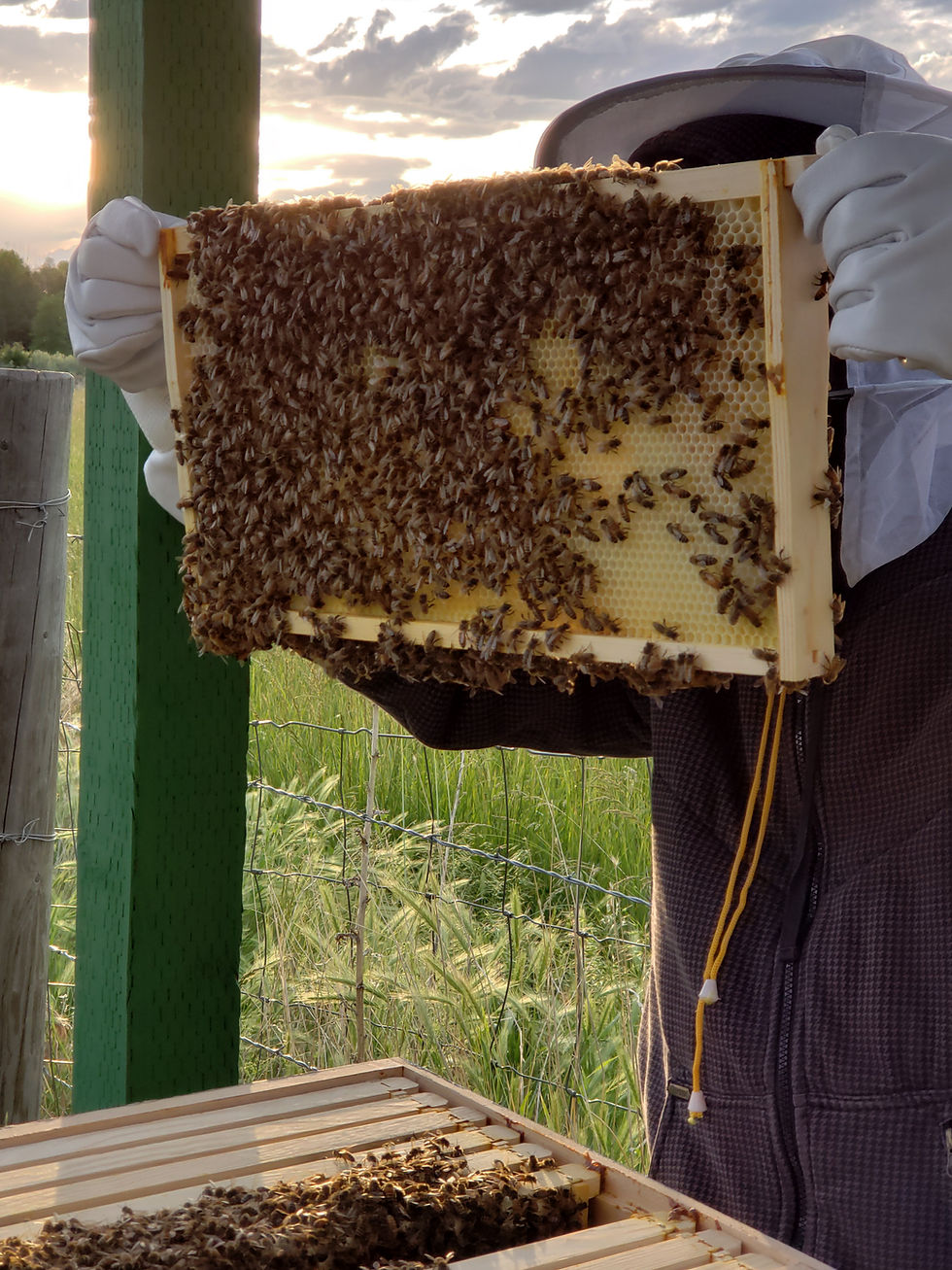We get a lot of questions about how we got into bee keeping and what were our first steps. So here's a quick little run down.
Before we moved onto our farm, we had a rough idea of what we wanted to raise, grow, tend to, etc.. and bees were at the top of the list. Not only do they make the sweet elixir of life but the world is in desperate need of healthy bees and we wanted to do our part.
We didn't jump in completely blind. My dad is a bee keeper , and we've had the pleasure of picking the brain of a family friend who is a commercial bee keeper as well. We had a tiny idea of what we were getting into, one hand me down hive box and a determined attitude. We jumped in all the way.

We bought our first nuc box ( 5 frames of bees with a mated queen) off a local man we found on craigslist. Although a good place to find things, if your a newbie at bee keeping you may want to find a local farm willing to answer all the questions you have.
We loaded the nuc box in Tims truck and drove off, still a little clueless but willing to learn as we go. Once home, we let the nuc sit close to were it's home would be and sat and stared at it for hours. We were intimated but so fascinated.
Never underestimate the power of what YouTube can teach you. We watched so many bee keeping videos our confidence was growing by the minute. Bee keeping has no REAL answers. What works for some may not work for others and no bee colony is the same. Keep that in mind if you ever decide to start this journey yourself.
We made it through summer on luck and YouTube, then the winter came. Every other bee keeper we knew lived in a climate that doesn't need to WINTERIZE their bee hive boxes, so we were flying solo. This is where YouTube can be a bit of a curse, because you are being told 80 different ways to over winter your hive and you don't know which will work. We made the fatal mistake of entrusting a neighbor with advice on mite treating our bees (info on this coming on the next blog) right before winter started. She used a vapor method which damaged our frames and created a condensation problem in the hive. Bees can not have a wet hive in winter. Due to our lack of knowledge and apparently our neighbors too, we lost our colony through the winter. It felt like the biggest fail. We thought we were ready. This is a reminder to all of you, THIS HAPPENS. Even commercial bee keepers lose hives yearly. Mother nature ultimate makes the decisions.

That was a wake up call for us to hit the bee keeping game a little harder and smarter. We were in it to make a difference now. We changed up our strategies, and did more research. Not just on bee keeping but on honey bees in general. We wanted to know everything we could. Everything about how they functioned inside and out of hive. The more knowledge we gained, the more of a calling we felt to tend to them as best we could.
We feel a deep connection to them. A need to protect them and spread education about their importance to us and the world we live in. We aren't just bee tending for honey, we are tending to the needs of a vital insect that needs our help.
The honey bee population is in dire need of change from us humans. Their populations are at a devastating low to do climate change and pesticide exposure. We depend on them for MOST of the food we consume. NO Bees = NO Food. Through education and organic farming practices we can help rebuild a healthy population of honey bees in our area. This is the perfect time to teach each other and our children the importance of caring for our earth and everything on it. And to raise the next generation of honey bee advocates.

We have lots of great information to share with you coming soon, including the basics of starting your own honey bee apiary and all things you need to become honey bee advocates in your area.
Have questions you'd like us to answer? Send us an email at wildrootsfarmstore@gmail.com
Comments